City of Davenport & Partners of Scott County Watersheds (2018-Current)
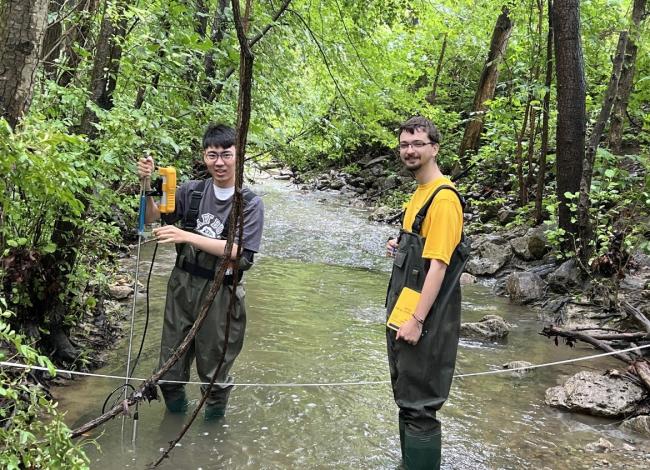
In partnership with the City of Davenport and Partners of Scott County Watersheds (PSCW), Augustana’s UMC students assess water quality, biodiversity, and riparian zone integrity across local creeks in Scott County. These efforts support regional watershed health and planning, enhance community education, and contribute to long-term environmental sustainability. This partnership with Davenport and PSCW has been ongoing for 8 years.
This partnership became the inspiration for a Regional Emmy Award-Nominated documentary Moved by Waters, highlighting regional watershed collaboration efforts. The documentary premiered at the Putnam Museum, and UMC’s efforts are featured throughout the film. The film showed at nearly two dozen additional locations throughout the Upper Midwest and aired on Iowa and Illinois public television and was prominently covered in local and regional media outlets.
Rock Island County Forest Preserve District & Public/Private Land Stakeholders (2022-Current)
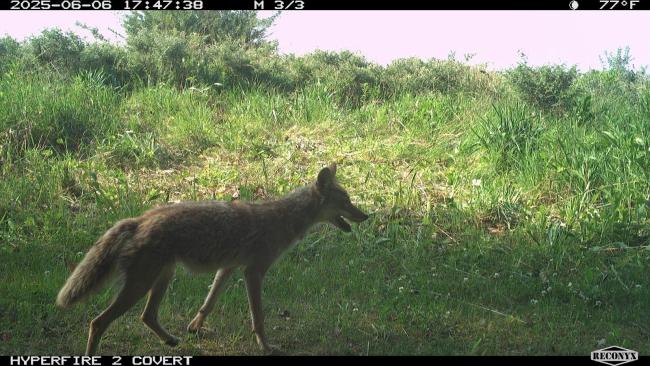
Now in its second year, this UMC-led project engages students in wildlife research through camera trap surveys on public and private lands. Partnering with local parks and landowners, students analyze species presence alongside ecological covariates such as forest patch size, landcover, and species interactions. This project supports regional biodiversity and habitat management.
Martin Luther King Center & West End Revitalization (2024-Current)
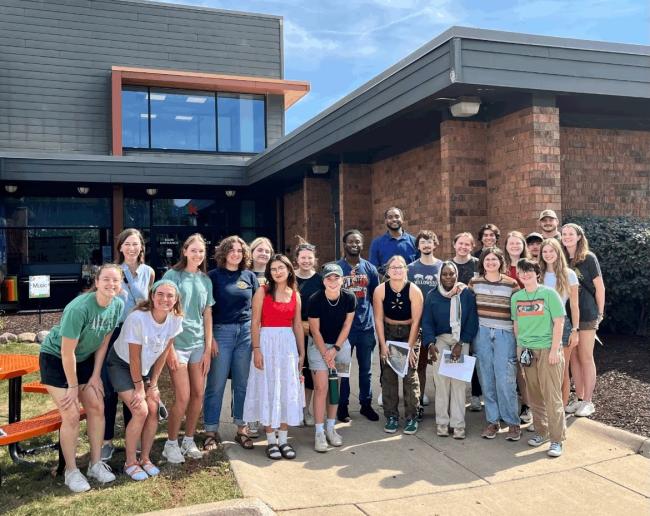
The UMC partners with the MLK Center and West End Revitalization on community-rooted projects that explore the social and environmental landscape of Rock Island’s west end. Through a photovoice project, oral histories, and mapping, students help elevate resident voices and inform revitalization efforts.
City of Rock Island (2022-2024)
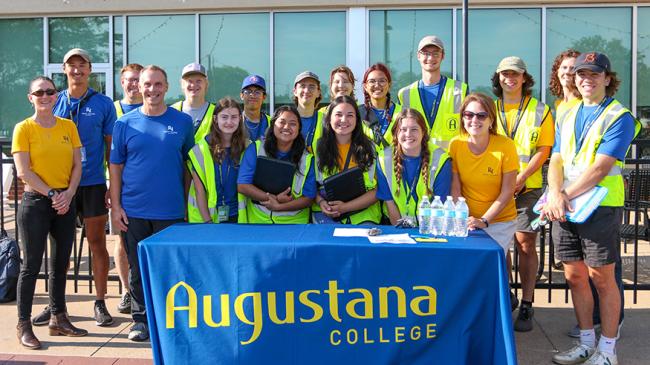
The Upper Mississippi Center and Center for the Advancement of Community Health and Wellness partnered with the City of Rock Island to support compliance with the Illinois Lead Service Line Replacement and Notification Act (Public Act 102-0613). The initiative aimed to develop a Service Line Material Inventory by identifying the type of water service lines—particularly those made of lead or galvanized materials—across the city.
Augustana students and faculty led neighborhood canvassing efforts, assisting residents with simple tests to determine pipe materials and collecting data linked to GIS. This work was critical in helping the city map service lines and prioritize areas for future replacement.
By fall 2023, Augustana students had helped survey over 12,000 homes, accounting for 25% of Rock Island residences. The remaining service lines were estimated through predictive modeling, enabling the city to build a complete inventory and begin planning its long-term replacement strategy. This project offered students real-world experience in public health, environmental science, and civic engagement while advancing the city’s ability to secure funding and protect residents from lead exposure.
Renew Moline (2020)
In the spring and fall of 2020, 35 students in Urban Planning and Environmental Justice (GEOG 323) partnered with the City of Moline to envision redevelopment opportunities near the new I-74 bridge. Their focus centered on three key sites along 5th and 6th Avenues on the eastern edge of downtown, soon to be made available for development.
Students reviewed existing downtown Moline development plans and studied case examples of public space design, bike infrastructure, and streetscape enhancements from other U.S. cities to propose new concepts tailored to Moline. Design proposals included reimagined public spaces at the 5th Avenue Terminus and along 21st Street, as well as improvements to the city’s bike network to enhance connectivity with the new bridge and surrounding areas.
Two UMC student interns provided additional technical support by using GIS and design tools such as Maya, Adobe Dimension, and Photoshop to produce visual simulations and viewshed analyses. These tools helped illustrate what pedestrians and drivers will see from the bridge and downtown—valuable insights for city planners, developers, and public artists.
Cities of Rock Island & Geneseo (2018-2021)
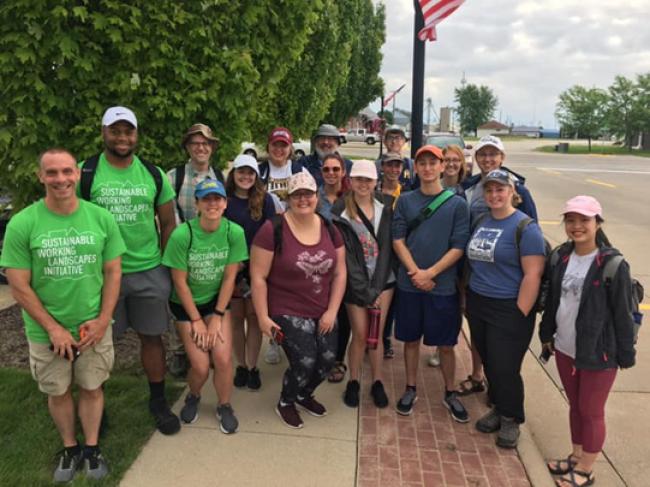
- Students in a marketing course worked with local small businesses and non-profits to create social media marketing plans
- Students in a geography course and environmental studies designed a stormwater utility program; including a model ordinance
- Students in a business social responsibility conducted and assessment of minority and women-owned general and sub-contractors in the QC Region
- Students in a geography course conducted a multi-faceted study of community gardens to better understand ways to improve the program
- Students conducted an inventory and assessment city-owned trees (right-of-way, parks, and other city-owned properties) of the urban forest canopy; including a geodatabase of relevant data and proposed cost-share program for replacing trees to ensure the resilience of the forest
- Students in an anthropology-sociology course conducted an survey of citizen satisfaction with city services
- Students in a geology and environmental studies course conducted a greenhouse gas emissions inventory for city-owned buildings and facilities
- Students in a data analytics course conducted an assessment of city fleet fuel usage to improve emergency response planning efforts
- Students in an environmental studies course developed a conservation and management plan for forest and grassland natural areas
- Students in a social welfare class conducted a program assessment for the Martin Luther King Center
- Students in a human resource management course conducted a survey of city employees to assess job satisfaction
Scott County Health Department (2016-2018)
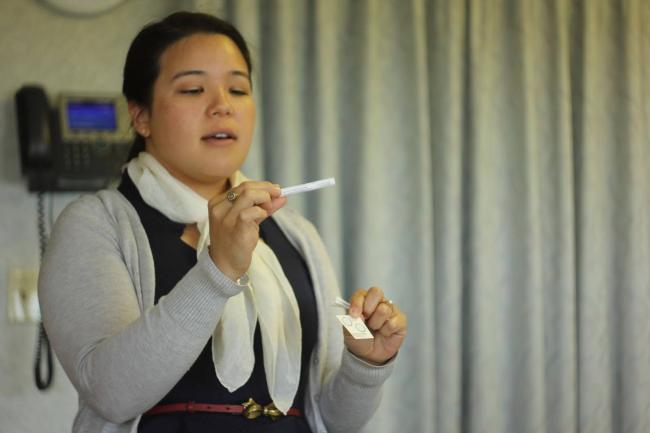
In partnership with the Scott County Health Department, the UMC focused on tackling the county’s alarming rate of childhood lead poisoning—four times the national average. The collaboration aimed to proactively identify and address the homes posing the highest risk of lead exposure, explore local funding solutions for lead abatement, and build a lasting public-private coalition to support long-term prevention of child lead poisoning.
Through the work of over 160 students across 13 courses and research projects, the team developed a predictive GIS model to map high-risk housing, conducted environmental lead screenings, surveyed thousands of homes, and crafted policy and funding recommendations. Students also engaged in community outreach, helping strengthen partnerships with major stakeholders including Genesis Health Systems, American Iowa Water, the Davenport School District, and the Quad Cities Housing Cluster.
This initiative not only made lead prevention a top county priority, but also laid the foundation for a comprehensive, community-driven response—demonstrating the power of applied learning to create safer, healthier neighborhoods.
DeWitt, Iowa (2016-2017)
During the 2016–2017 academic year, the UMC launched SWLI Microprojects—smaller-scale partnerships designed to support rural communities that may only have the capacity for one project at a time. The City of DeWitt, Iowa, was the first community to participate.
Thirty-two students from Urban and Transportation Geography (GEOG 325) and Urban Design and Planning (GEOG 423) collaborated with city officials to evaluate DeWitt’s commercial zoning codes. They provided tailored recommendations to strengthen the city’s zoning framework and promote more resilient, livable communities. In addition, students compiled a summary of best practices from comparable Iowa and Midwestern communities. The project received media coverage from WVIK in fall 2016 and served as a successful model for future microproject partnerships.
Clinton, Iowa (2015-2016)
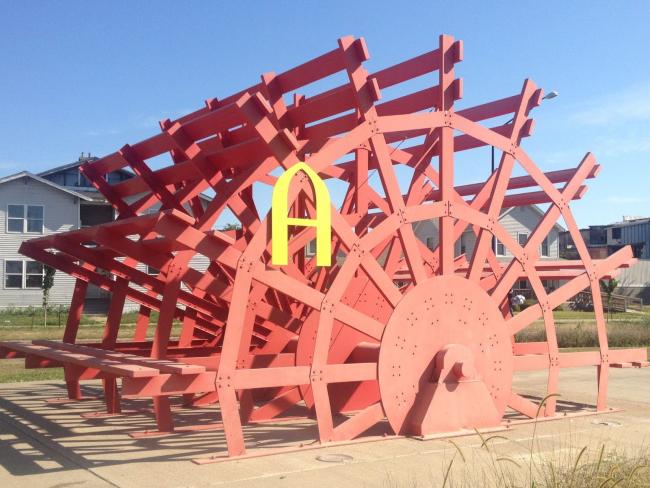
The inaugural SWLI partnership with the City of Clinton engaged more than 330 students across 22 courses and 17 faculty mentors, resulting in over 3,300 hours of applied student work. Students completed 15 community-identified projects supporting Clinton’s social, economic, and environmental sustainability goals.
Project highlights included developing an Urban Forest Management Plan, evaluating transportation options such as bus routes and bike trails, auditing Parks & Recreation funding models, and designing wayfinding tools to promote local culture and tourism. Students also conducted city employee satisfaction surveys, assessed citizen needs through community polling, and created an oral history project documenting the Clinton Corn Company Strike. Additional efforts supported local businesses with marketing plans, stormwater management studies, and resources for entrepreneurs. These high-impact, real-world experiences provided the city with actionable strategies and tools while giving students meaningful opportunities to apply their learning.
